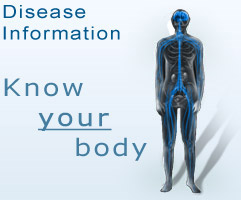Gastro-oesophageal Disease (GORD)
What is gastro-oesophageal reflux disease (GORD)?
GORD is a condition in which acid from the stomach flows back (refluxes) into the oesophagus, causing irritation and sometimes damage to the lining of the oesophagus. The reflux of stomach acid can reach high enough to affect the vocal cords or even flow into the lungs (called aspiration), causing damage to those tissues and organs as well.
Symptoms of GORD
- Blood in your stools or bleeding through the mouth when you vomit or retch.
- Persistent or repeated vomiting.
- Problems with swallowing or pain during swallowing.
- Unexplained weight loss.
- If you do not get better on your prescribed medication for GORD.
Diagnosis
GORD is usually diagnosed based upon symptoms and the response to treatment. Further testing is required when the diagnosis is unclear and in people who have ‘alarm' symptoms (such as a low blood count or difficulty swallowing).
Some doctors also recommend specific testing in people who require long-term treatment with medication to reduce stomach acid.
Your doctor will first want to rule out other conditions that may need to be distinguished from GORD. This is particularly true if chest pain is a symptom, since chest pain can also be a symptom of heart disease. So, in some people heart disease has to be ruled out before testing for GORD.
Your doctor may require some of the following tests to be done, all of which are safe and fairly painless:
Endoscopy (gastroscopy of gastro-duodenoscopy)
An upper gastro-intestinal investigation is one of the most common tests used to evaluate the oesophagus. A small, flexible tube is passed into the oesophagus, stomach and upper part of the small intestine. The tube has a light source and a camera that displays magnified images that the doctor can examine. Damage to the inside lining of those structures can be evaluated and specimens of tissue (biopsies) can be taken to determine the extent and seriousness of tissue damage.
Barium swallow
This involves ingesting a thick paste of barium while taking x-rays. The barium fills and coats the oesophagus so it can be seen on the x-ray film.
24-hour oesophageal pH study
This is the most sensitive test for diagnosing GORD. The test involves swallowing a thin tube, which is left in the oesophagus for 24 hours, during which time the patient keeps a diary of symptoms. The tube is attached to a small box that measures how much stomach acid is reaching the oesophagus. This test is usually reserved for patients in whom the diagnosis is unclear after a gastroscopy or a trial of treatment. It is also useful for patients who continue to have symptoms despite treatment.
Oesophageal manometry
This involves swallowing a tube that measures the muscle contractions of the oesophagus and determines if the lower oesophageal valve is functioning properly. This test is usually reserved for patients in whom the diagnosis is unclear after other testing or in whom surgery is being considered.
If these tests are all normal, your doctor may do an electrocardiogram and/or chest x-ray to exclude other conditions.
Complications associated with GORD
The vast majority of patients with GORD will not develop serious complications, particularly when the reflux is adequately treated. It is in your interest to take your treatment as prescribed and to apply lifestyle modifying actions as advised. A small number of patients with GORD, who are under-treated, may be susceptible to:
- ulcers, changing or narrowing of the tissue of the oesophagus. Some of these changes can cause more serious oesophageal conditions;
- lung and throat problems due to acid that enters these structures;
- Barrett's oesophagus - Barrett's oesophagus occurs when the normal cells that lines the lower part of the oesophagus (squamous cells) is replaced by a different cell type (intestinal cells). This process usually results from repetitive damage to the oesophageal lining. The most common cause is longstanding GORD; and
- oesophageal cancer - a major risk factor of Barrett's oesophagus.
Treatment of GORD
How GORD is treated often depends upon its severity.
Mild symptoms
Many patients have already treated their symptoms by adjusting their diet and taking over-the-counter medication like antacids or acid-blocking medication before seeing their doctor. Your doctor may suggest additional changes to your diet or lifestyle:
- Quit smoking: Smoking reduces the amount of saliva in the mouth and throat. Saliva contributes to neutralising refluxed acid. Smoking also lowers the pressure in the lower part of the oesophagus and provokes coughing, causing frequent episodes of acid reflux in the oesophagus.
- Avoid foods that cause more reflux and high acidity: In general, it is best to avoid excessive caffeine, chocolate, alcohol and peppermint. Other foods that may contribute to symptoms include fatty foods. Note that although it is frequently recommended to avoid acidic foods, most GORD symptoms are caused by acid that your stomach manufactures, not by what you eat.
- Avoid late meals: Lying down with a full stomach makes reflux more likely. You should not lie down for two to three hours after eating.
- Weight loss: In significantly overweight people, losing weight may help reduce reflux. There is a strong association between increased body mass and symptoms of GORD, particularly in women.
- Raise the head of the bed 15 to 20 centimetres: Although most patients only have heartburn for two to three hours after meals, some wake up during the night with heartburn. Elevating the head and shoulders higher than the stomach allows gravity to keep acid from refluxing. You can raise the bedposts with blocks of wood or place a foam wedge under the mattress. Do not prop yourself up on pillows, as this can produce an unnatural bend in the body that will increase pressure on the stomach, making reflux more likely.
- Avoid wearing tight garments: Tight garments can raise stomach pressure, forcing stomach contents into the oesophagus.
- Promote production of saliva: Chew gum or lozenges, as this will help to clear stomach acid that has entered the oesophagus.
- Eat smaller meals: This helps prevent the stomach from becoming over-distended, which tends to cause reflux.
- Discuss your medication with your doctor: Certain medication you may be taking for other conditions may also be contributing to reflux.
Moderate to severe symptoms
Patients with moderate to severe symptoms, complications of GORD, or mild symptoms that have not responded to the lifestyle modifications described above usually require treatment with prescription medication. The vast majority of patients are treated with medication that decrease stomach acid production, like antacids, H2-receptor antagonists (H2RA) or a proton pump inhibitor (PPI) drug.
Adherence to treatment
If you have been diagnosed with heartburn, gastro-oesophageal reflux or gastro-oesophageal reflux disease, you should use your treatment regularly as prescribed and ensure that you adhere to lifestyle modifications.
Can GORD be cured?
Medication cannot cure GORD but they can alleviate symptoms and prevent damage to the oesophagus. A number of different approaches have been advanced to offer a permanent, non-medical solution.
Surgical treatment
Several surgical approaches to GORD have been developed. Currently the most popular is laparoscopic Nissen fundoplication. In general, anti-reflux surgery involves making smaller the hole in the diaphragm through which the oesophagus runs and strengthening the lower part of the oesophagus.
Medical therapy
Due to the effectiveness of medical therapy, the role of surgery has become more complex. Many doctors consider surgery for relatively young patients with GORD who have demonstrated the need for permanent medical therapy. Other physicians are more cautious, noting that there are no long-term results available, and lapses in current procedures have been observed to occur at rates of up to 2% per year.
New methods
An advance in the surgical treatment of GORD was the ability to perform surgery laparoscopically. This technique involves the creation of several small incisions in the abdomen through which a camera and instruments are passed. However, the issues and complications associated with the standard conventional techniques still apply.
References
http//:www.health24.co.za
 TransmedBanner4.jpg)

